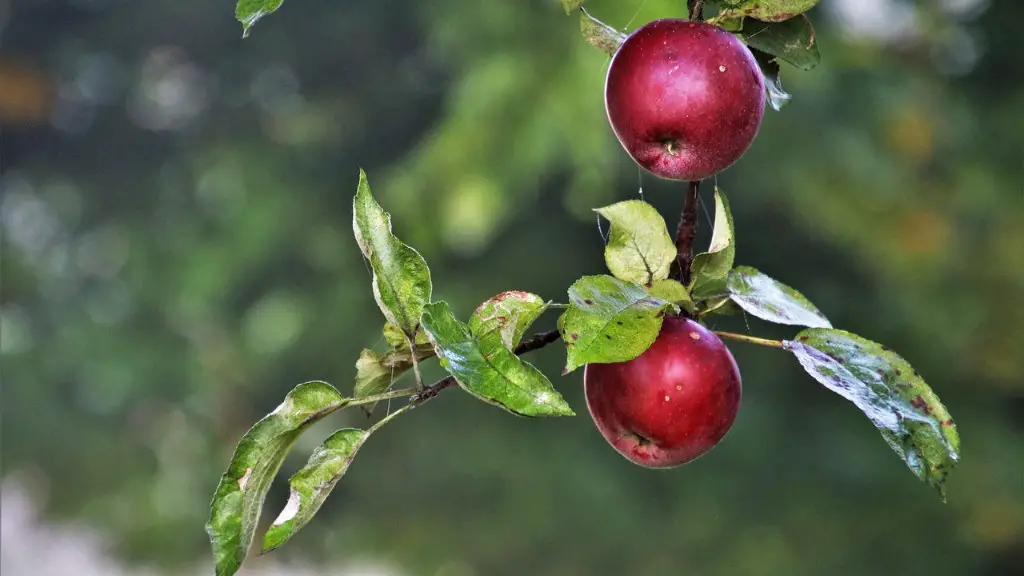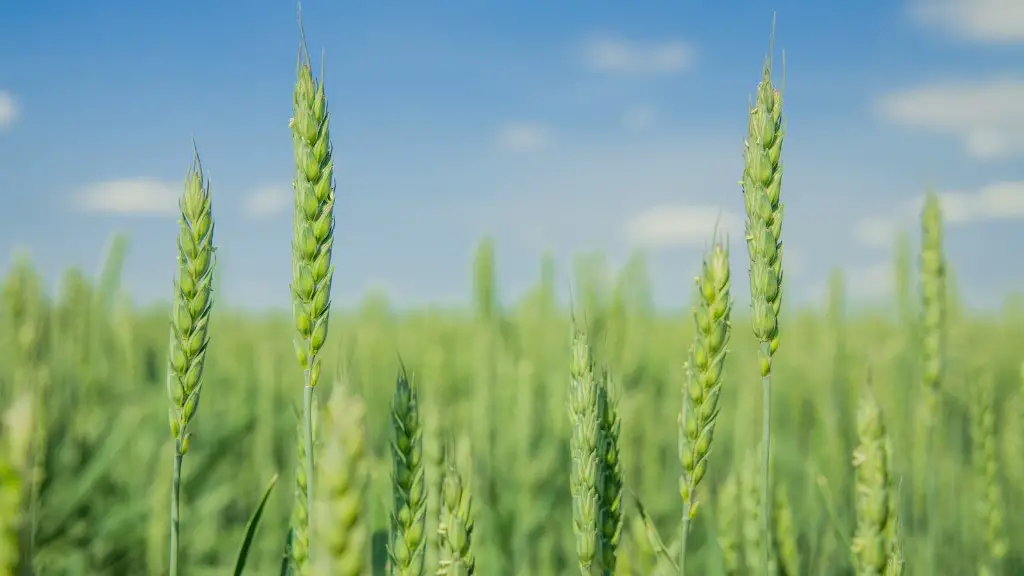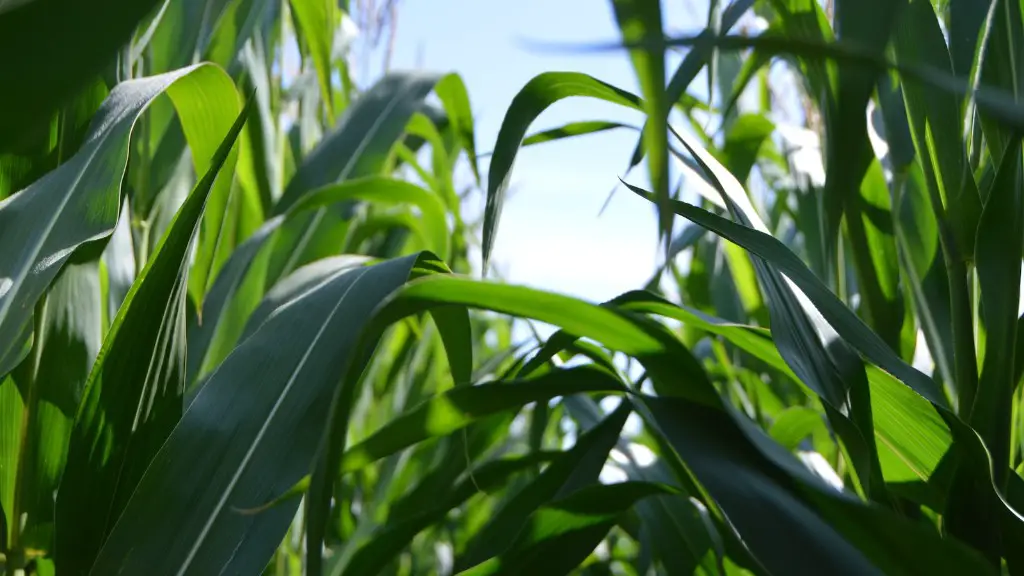Agricultural industries are among the oldest economic structures and have been around since the advent of agricultural production. While they have grown immensely over the centuries, they are still considered the backbone of many countries’ economies and a source of food security and artistic recreation. This article will discuss the question of whether agriculture is perfect competition, and analyze the various factors that contribute to it.
Agriculture is often characterized as a business of scale and specialization in order to attain maximum efficiency. This is because the production of food requires a wide variety of inputs to achieve quality products, such as irrigation systems, fertilizer, pesticides and seeds. As a result, the cost of production tends to increase as the goal is for a more advanced, efficient and higher-yield output. Therefore, it is difficult to argue that agricultural businesses are in the state of perfect competition, where the situation of market power is characterized by multiple participants and no participant has an advantage over another.
Moreover, agricultural production can also be subject to external factors that may influence the output and outcomes of the business, such as seasonal variations of climate and changes in government policies. This type of unpredictability adds to the difficulty of achieving perfect competition. In addition, the large scale of agricultural output, and the difficulty of getting into the industry can lead to a certain level of oligopoly. This gives large agricultural businesses an unfair advantage over the smaller ones, further hindering perfect competition.
Furthermore, the fragmented nature of agricultural production also contributes to the lack of perfect competition in the sector. Farming as an industry is run by owner-operators, who are often family units, and they are largely independent of each other. As a result, they tend to have different production methods and therefore prices, which can create a situation of market instability.
Finally, it is important to note that perfect competition is ultimately an ideal that cannot always be achieved. There are numerous factors that come into play in an industry and these can create an imperfect competitive environment, which is the situation of agricultural production. This does not mean that agricultural industries are not competitive, but rather that perfect competition cannot always be maintained.
Agricultural Economics
Agriculture takes into consideration other economic realities such as supply and demand, consumer behavior, and dollars and cents. Agricultural economics is a cross-cutting branch of economics, where economic theory and analysis are applied to the production, trade, and consumption of agricultural resources, livestock and crops in order to achieve maximum efficiency. Because of this, efficiency and profitability become very important aspects in the agricultural sector and the development of a competitive environment may not be possible.
In addition, price elasticity is a key concept when it comes to agricultural economics. Price elasticity of demand indicates how sensitive consumers are to price changes, meaning that if a price increase is not met with a proportional increase in demand, then the industry is not in perfect competition. In addition, price competition and quality competition can often times be conflicting goals in the agricultural sector, further reducing the possibilities of perfect competition.
Agricultural production is heavily influenced by government regulations, which can be beneficial to some producers and not so much to others. These regulations may influence pricing, input costs and total yields, making it difficult for agricultural producers to to compete against each other. Furthermore, technology advances have created large-scale mechanization within the agricultural sector, generating higher yields at lower costs; however, this can create a situation of market power and make it nearly impossible for small-scale producers to compete with it.
Finally, the pricing and distribution of agricultural products may also be affected by the presence of large retail chains. Retailers are often in control of setting prices, selecting suppliers, and taking their products to a wider market, thus having the power to distort the perfect competition environment.
Advantages of Perfect Competition
Perfect competition in agriculture is beneficial in that it fosters competitively fair price adjustments. This by far is one of the biggest advantages of perfect competition, as it helps to prevent monopolies from being created in the industry. With perfect competition, firms have the same access to resources, market knowledge and know-how and therefore the ability to compete pricing with one another on a level playing field.
In addition, perfect competition promotes healthy competition and helps to ensure the best outcome for consumers. Perfect competition forces firms to strive for quality, competitive pricing and the most efficient production of goods to be successful in the long run. Furthermore, it allows the industry to better manage risk and makes the agricultural production more reliable and less susceptible to certain environmental risks and price fluctuations.
Moreover, perfect competition implies the highest degree of efficiency and productivity in an agricultural sector. This is beneficial for the farmers and the society in general as it brings in more income, reduces waste and leads to more efficient use of resources. Furthermore, it is beneficial for the overall environment as well, due to the lessened use of resources and the more responsible management of natural resources.
Finally, perfect competition is beneficial for the market as a whole in that it provides a more balanced and stable economic environment. With perfect competition, economies are less prone to systemic risks, such as financial crises, as pricing is fair and reasonable, and producers have little to no control over the market.
Disadvantages of Perfect Competition
While perfect competition can be beneficial in certain circumstances, it can also pose some problems. Perhaps the most obvious one is that it leads to greater competition and accordingly, lower profit margins. This can lead to difficult decisions for producers, as their price and cost structures may become unsustainably low. As a result, they may be forced to put their business at risk in order to stay afloat.
In addition, perfect competition can also lead to stiff regulations in the agricultural industry. This is because for perfect competition to be realized, firms must abide by set rules and regulations. Such regulations are often necessary to protect the industry, but they can also have damaging effects if not properly managed.
Furthermore, perfect competition in the agricultural sector may not always be desirable, particularly in times of severe drought and other natural disasters, as farmers may be forced to increase their prices in order to survive. This can create a situation of market instability and ultimately lead to shortages of food.
Finally, there is also the problem of making sure that the farmers and producers are being fairly compensated for their work, especially when large corporations enter the market. This can put small-scale producers at a disadvantage and lead to exploitation of the farmers, as they may be forced to accept unfair contracts in order to stay competitive.
Competition Law in Agriculture
Competition laws seek to protect and foster fair competition among agricultural producers, while also ensuring consumers get the best quality product at the fairest price. These laws set out provisions regarding anti-competitive behavior and practices, and strive to create a fair and level playing field among producers, distributors and retailers. The policies often involve restrictions on the type of agreements that can be established between participants, as well as prohibitions on certain practices, such as price-fixing.
Competition laws have become increasingly relevant in the agricultural sector due to the increasing concentration of market power. Large corporate farming operations are gaining an increasingly large share of the market and have started to become involved in setting prices and controlling input costs, thus distorting the market and making it impossible for smaller producers to compete. Competition laws help to stem this market power and ensure fair competition.
The enforcement of competition laws in the agricultural industry is also important in that it helps to protect and promote a healthy and fair market, which is beneficial for all stakeholders. This is especially true for the small-scale producers, who could be left behind in a situation of monopolistic or oligopolistic market power.
Finally, competition laws can also play a role in the development of new market entrants. For example, laws which encourage innovation and new technologies can foster the entry of new firms into the market, thus creating a competitive environment and helping to ensure perfect competition.





